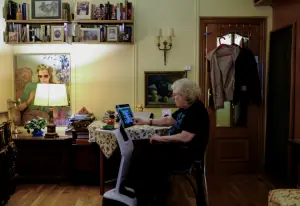Government to ‘amend’ Supreme Court Practice and Procedure Act
3 min readThe federal government has decided to introduce amendments to the Supreme Court Practice and Procedure Act, with expectations of changes concerning the committee responsible for forming benches, sources said on Friday.
The government narrowly passed constitutional amendments on Monday giving lawmakers more power to appoint top judges, who have issued a series of recent decisions favouring opposition chief Imran Khan.
Under the judicial reforms passed during an early morning session of parliament, Pakistan’s chief justice will now be selected by a parliamentary committee and have a fixed term of three years.
Under the previous law, he would have been automatically replaced by the next most senior judge – currently Mansoor Ali Shah, who has consistently issued verdicts deemed favourable to Khan and his party.
The amendment would be brought through private legislation to align with the 26th Constitutional Amendment, they added.
It is expected to be presented in the National Assembly on Tuesday, with government members instructed to ensure their attendance at the assembly session.
Work is ongoing on previously existing private bills aimed at increasing the number of judges. To facilitate the passage of the amendment bill, sessions of the National Assembly and Senate have been extended, which were initially scheduled to conclude indefinitely on Friday.
In September, President Asif Zardari signed the Practice and Procedure Amendment Ordinance into law.
In October 2023, the Supreme Court reaffirmed the SC (Practice & Procedure) Act, 2023, designed to streamline the operations of the highest court in the country.
Initially passed by parliament in April 2023, the law stipulates that a three-member bench—comprising the Chief Justice of Pakistan (CJP) and the two most senior judges—will now determine whether to take up cases on a suo motu basis. This marks a shift from the previous system, where the CJP held exclusive authority over such decisions.
Furthermore, the Act enhances the court’s review jurisdiction by allowing individuals to file an appeal within 30 days of a judgement in suo motu cases. This change is expected to improve access to justice and ensure a more collaborative decision-making process within the Supreme Court.
Meanwhile, the Senate was adjourned Friday to meet again on October 28 at 3pm for lack of quorum.
Also, read this
Battle over Practice and Procedure Ordinance heats up, challenges filed in courts
As the session of the House resumed after a two-day break, question hour was under way when the lack of quorum was pointed out. PPP Senator Saleem Mandviwalla who was presiding over the sitting adjourned the House for reconvening after 30 minutes.
Later, as the House reconvened, the quorum was again pointed out, the count was made but the House was not in order, forcing the chair to adjourn the session till Monday.
Mandviwalla while adjourning the House informed the members of the Upper House that a delegation led by Federation Council of the Russian Federation Speaker Valentina Matviyenko will visit Pakistan from October 27 to 29.
She will address the Senate on the invitation of Senate Chairman Syed Yousuf Raza Gilani on October 28 at 5pm. The presiding officer urged the members of the Senate to ensure their presence and active participation in furthering Parliamentary diplomacy and strengthening the bond between Pakistan and Russia.
For the latest news, follow us on Twitter @Aaj_Urdu. We are also on Facebook, Instagram and YouTube.






















Comments are closed on this story.